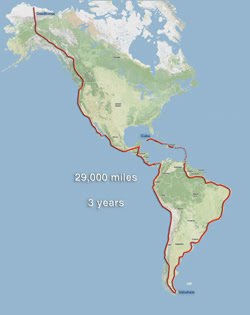In the Sea of Japan right now there are estimated to be over 20 billion Nomura's Jellyfish. Weighing up to 400 lbs each, swarms can fill the sea for hundreds of miles and the the Japanese fishing industry is in financial crisis as it's fishermen dredge up tonne after tonne of these gelatinous creatures instead of the food fish they seek. The phrase 'reaping what we have sown' is very apt here. As the jellyfish are slashed and torn by the fishermen before being thrown back into the depths, its last act before dying is to release millions of fertilised eggs.
The Sea of Japan has been remorselessly plundered for 50 years. Predators and prey fish alike have been stripped from the depths and laid out in Tsukiji fish market in ever-increasingly unsustainable numbers. The fertilised eggs of the Nomura's become polyps and produce new-born jellyfish which are now free to grow and grow and grow until they can fill the void to become the primary predators in their habitat. A single adult Nomura's can filter a volume of water the size of an olympic swimming pool in a day, depriving fish of the zooplankton they need to survive in numbers.
The result is fewer of the traditional fish in the Tokyo markets, the end of an industry which has been the architect of it's own demise and oceans full of jellyfish for the rest of us. Be in no doubt, if affects us all. The alarming news for the western world is that this problem is not just a Japanese one. There are about 300 known species of jellyfish, and they are ALL thriving, positively blooming in all the oceans of the world. For them, a slight change in sea temperature means boom-time. Any change in temperature, salinity or levels of nutrients and pollution means it's time to get busy and with their normal predators out of the picture they've got the place to themselves.
If you enjoy any sort of marine based activity or even just a dip in the sea on your holidays then make the most of it while you can. The rise of the jellyfish could be unstoppable and they're reclaiming the habitat they were once kings of in the past.
Saturday 7 November 2009
Subscribe to:
Posts (Atom)


